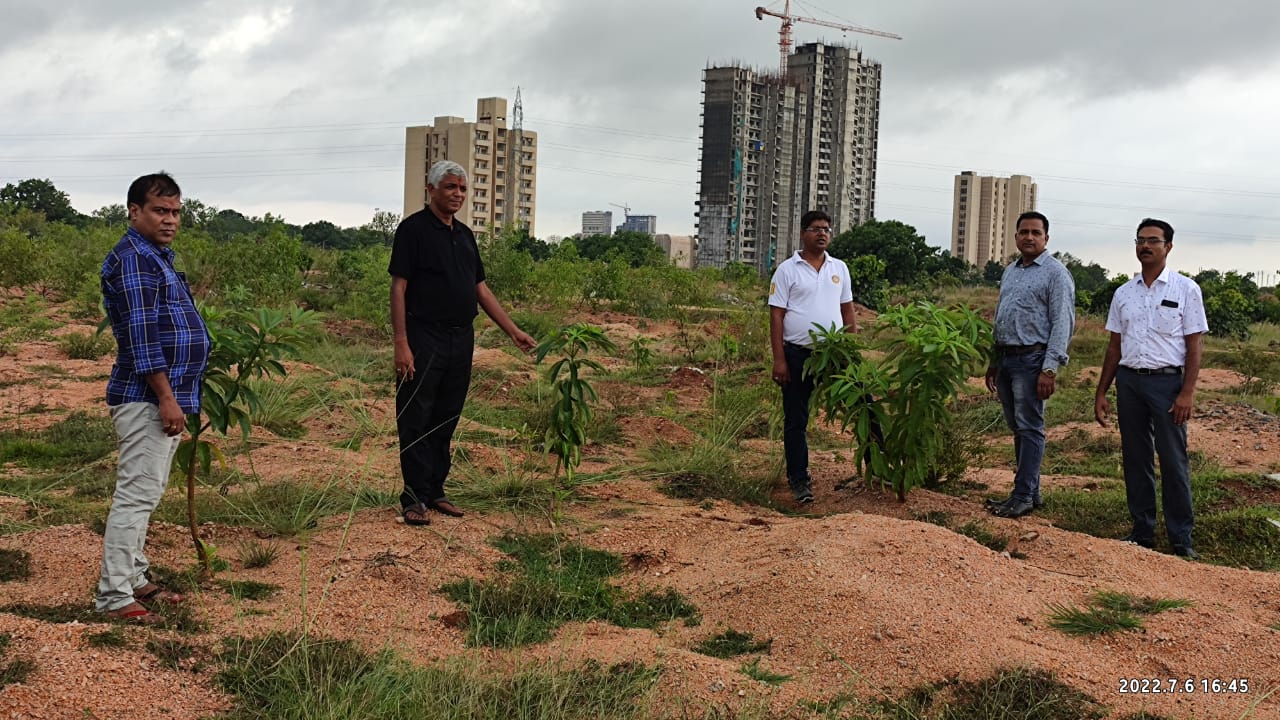
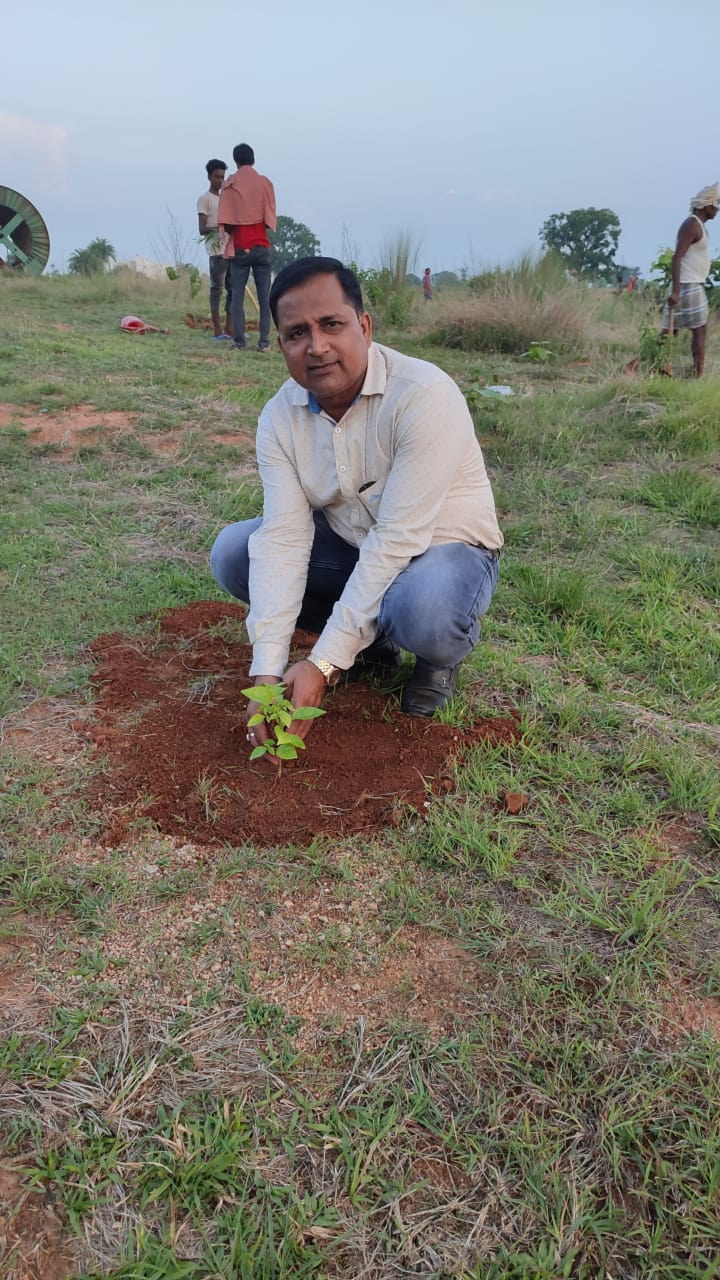
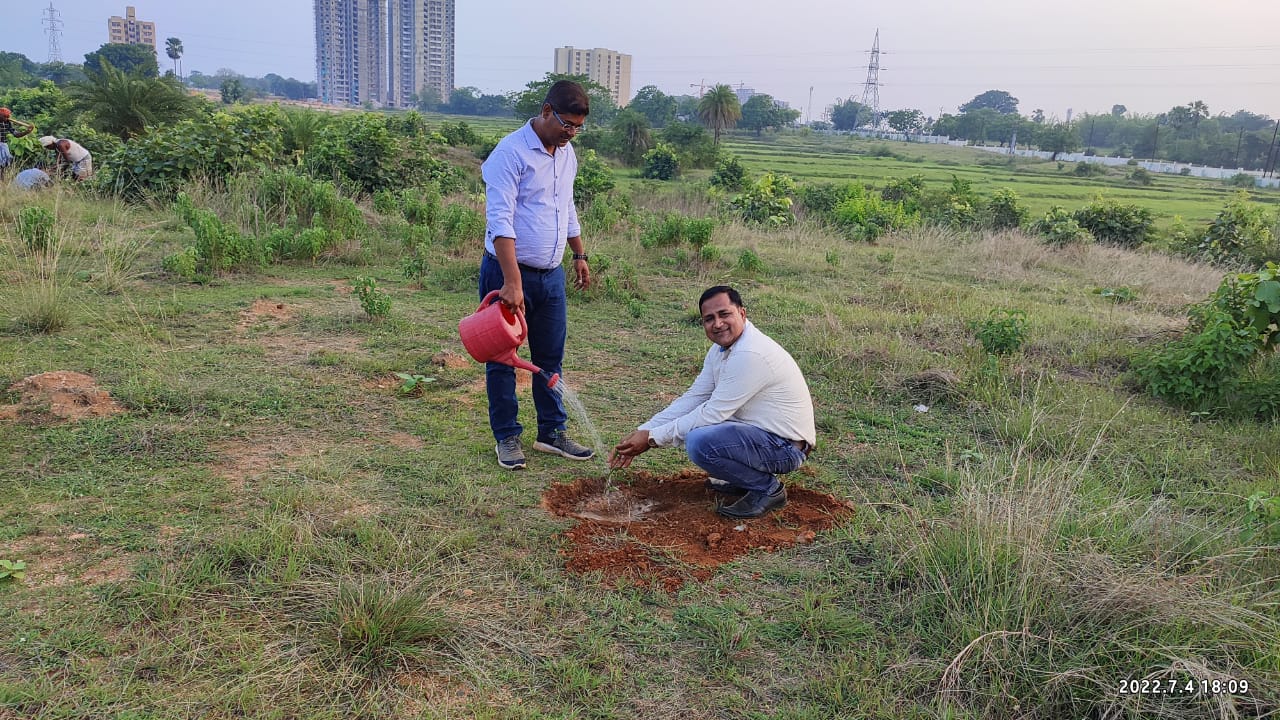

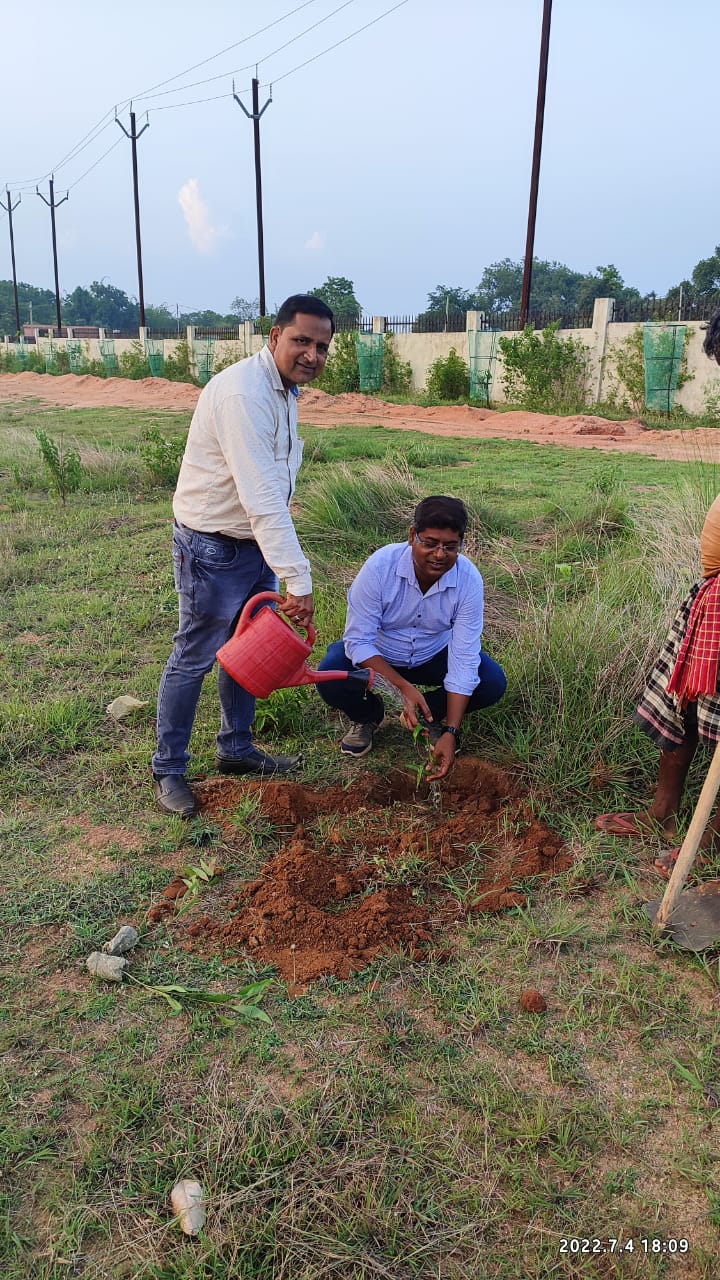
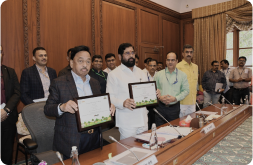
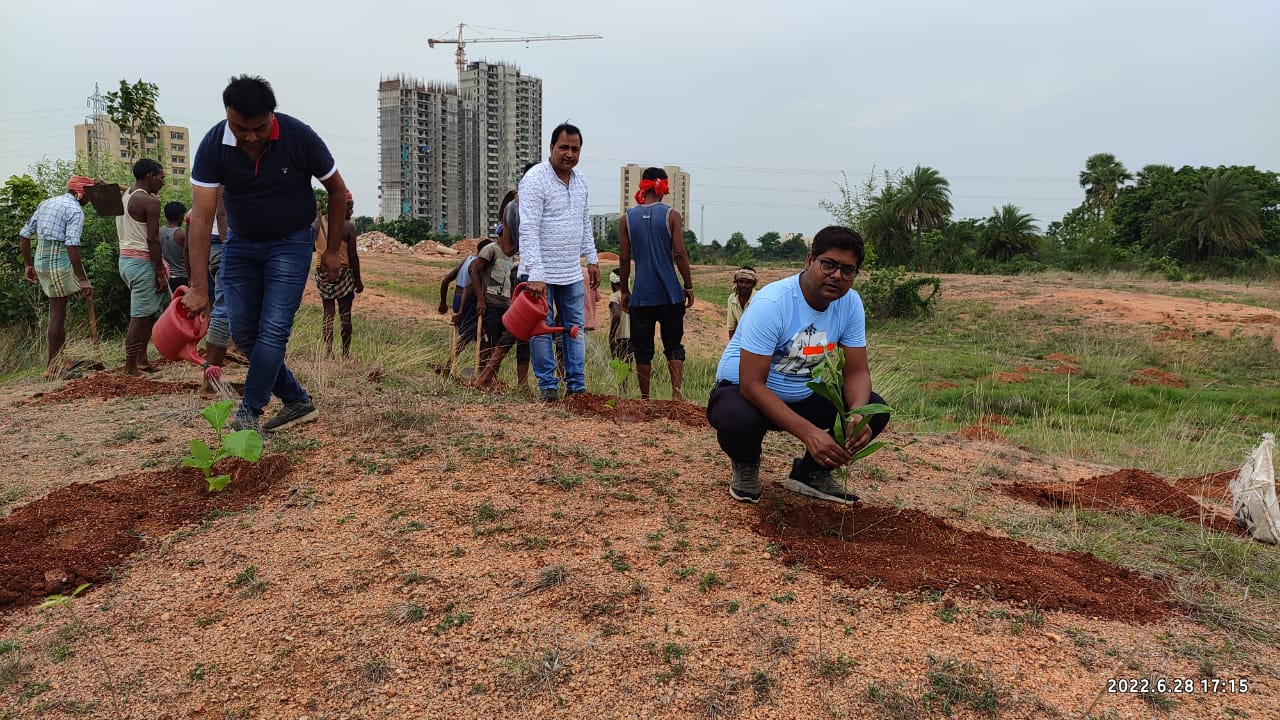
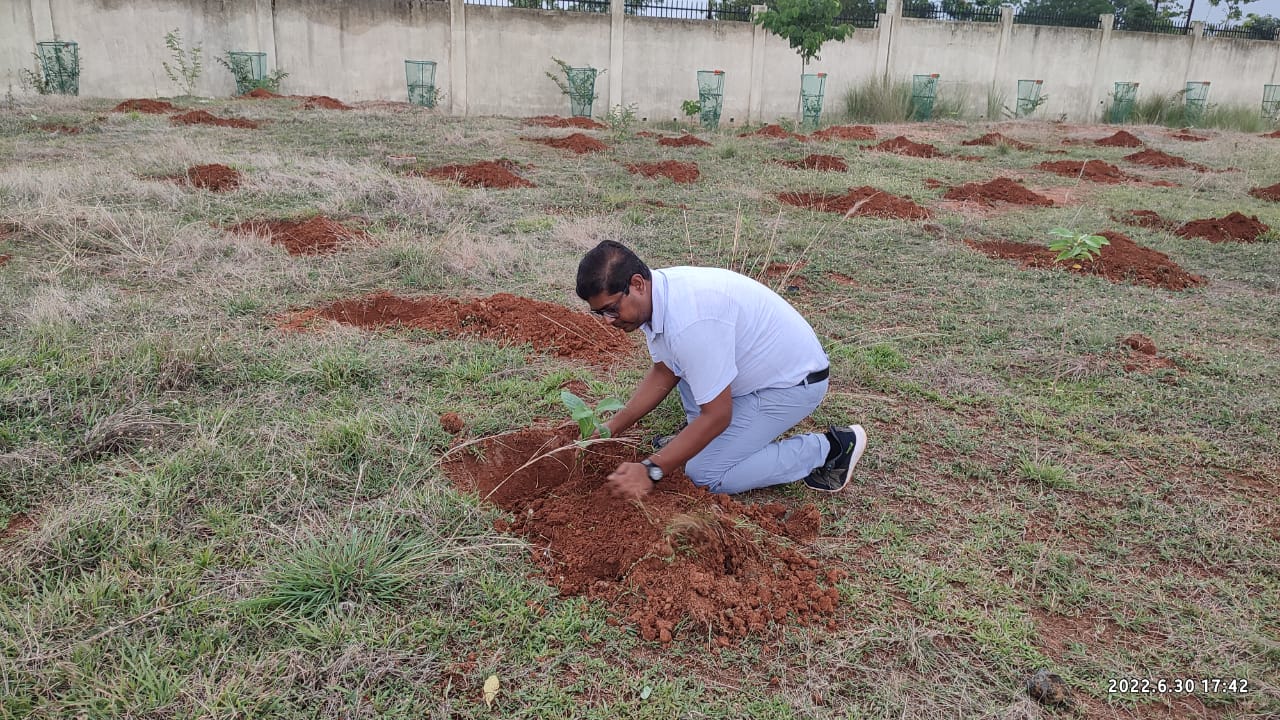
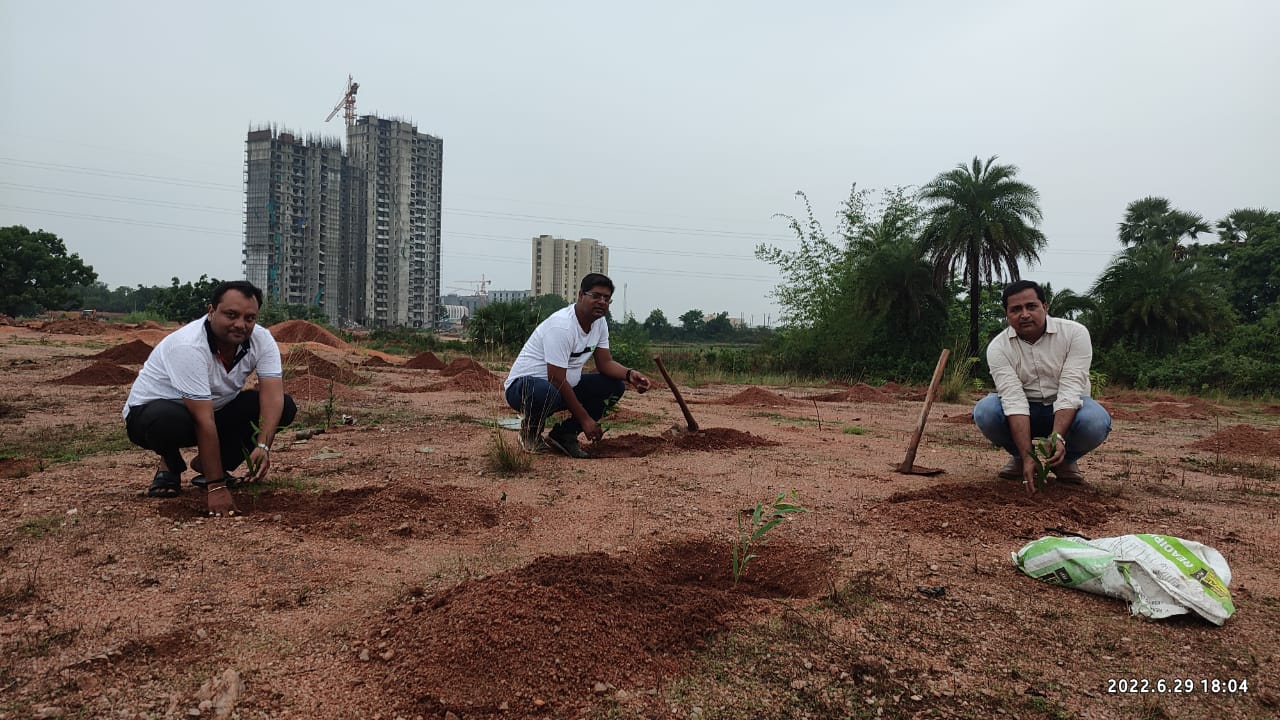
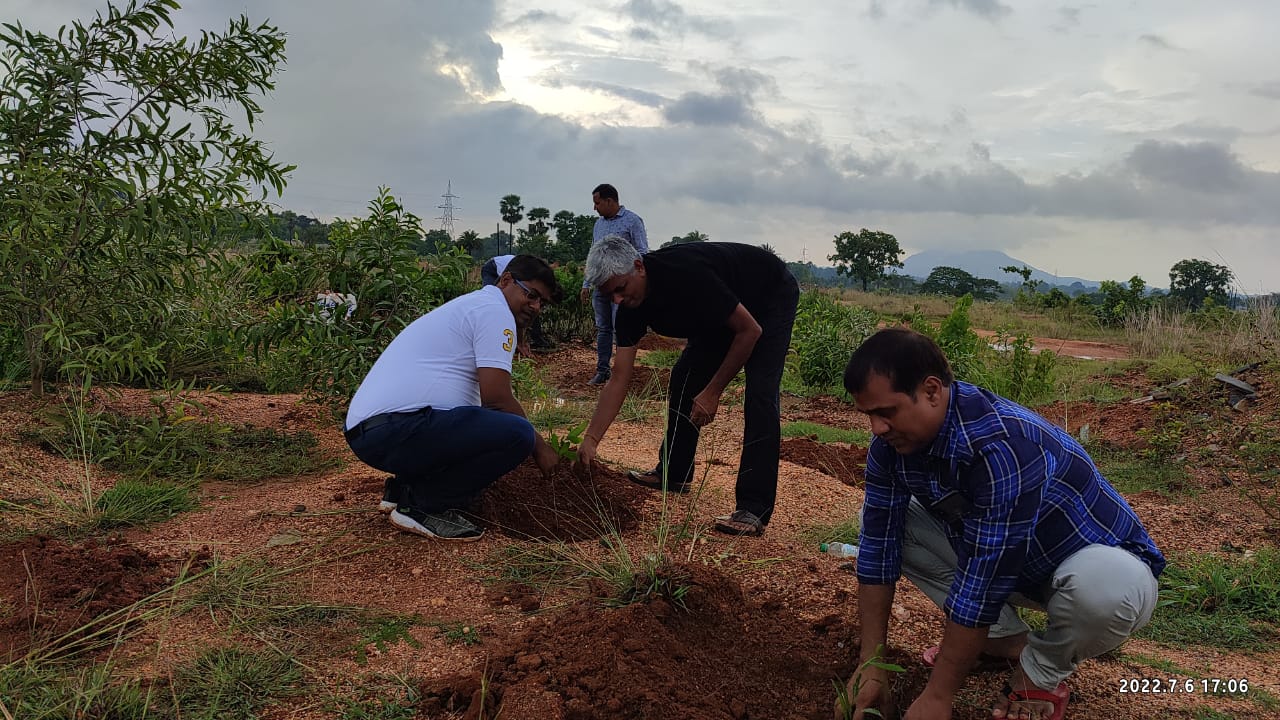
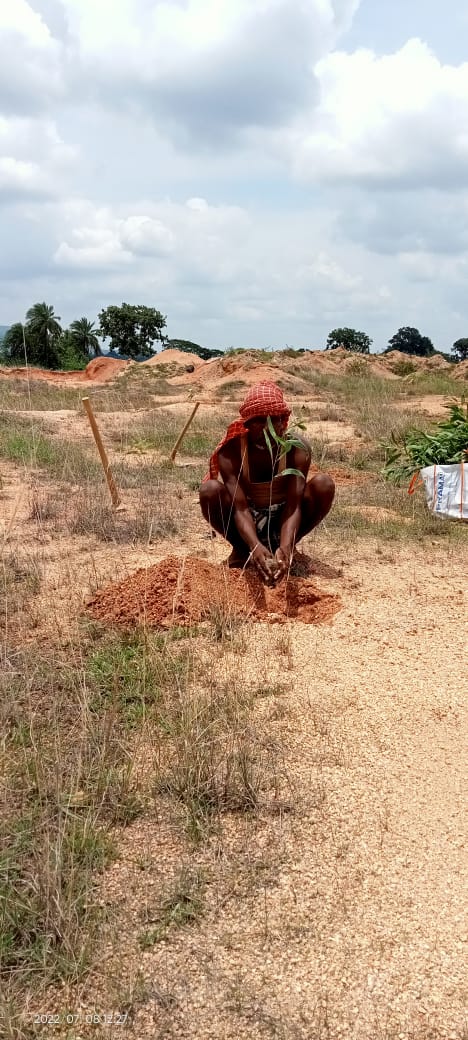
Project Target
0% Remaining
50,000
Trees Planted out of 50,000 Trees

Project Location:
The plantation project is implemented in the AIIMS Hospital campus in Deoghar, Jharkhand, India.
Project Aim
The project has its belief rooted in the correlation between trees and quicker recovery. "Hospital patients in Pennsylvania who recovered from surgery in a room with a view of a stand of trees needed less-potent pain medications and were released seven to nine days earlier than patients in rooms facing a brown brick wall. " (R Ulrich, "View Through a Window May Influence Recovery from Surgery", Science, vol. 224, no. 4647: pp 420-421 (1984), cited in "You are the Placebo" by Dr. Joe Dispenza). In addition to this, several studies have also shown that exposure to nature improves cognitive performance, self-discipline, and overall mental wellness.
Two researchers (Kuo and Sullivan) from the University of Illinois studied how well residents of the Chicago Robert Taylor Housing Project (the world's largest public housing development) were doing in their daily lives depending on the contact they had with trees. Their study concluded that planting trees can help cut social service budgets, reduce police calls for domestic violence, and strengthen urban communities. According to the Chicago Tribune, the Chicago City Government paid $10 million to plant 20,000 trees, a decision influenced by Kuo and Sullivan's findings.
There is a link between tree plantation, green spaces, and mortality, and it is documented in the literature (James, Hart, Banay, & Laden, 2016; Nowak et al., 2018; Villeneuve et al., 2012). The authors of one research linked the infestation and death of ash trees (genus Fraxinus) in counties throughout the United States to an increase in cardiovascular and respiratory fatalities (Donovan et al., 2013). More trees, particularly mature species planted in strategic areas, might reduce particle matter and other kinds of air pollution, potentially lowering mortality and morbidity in our cities.
Reduced negative thoughts, depression symptoms, better-reported moods, and increased life satisfaction are all linked to planting trees and greener environments (Berman et al., 2012; Bratman, Hamilton, Hahn, Daily, & Gross, 2015; Li, Deal, Zhou, Slavenas, & Sullivan, 2018; Lohr & Pearson-Mims, 2006; Mayer, Frantz, Bruehlman-Senecal, & Dolliver, 2009; Taylor, Wheeler, White, Economou, & Osborne, 2015; White, Alcock, Wheeler, & Depledge, 2013).
Residents in tree-lined neighborhoods are happier and have fewer cardiovascular and metabolic problems than their counterparts (Kardan et al., 2015). The presence of trees can even help those suffering from neurological diseases (Mooney & Nicell, 1992). People also enjoy being around and observing trees and natural settings because they cherish them (Dwyer, Schroeder, & Gobster, 1991; Kaplan, Kaplan, & Wendt, 1972; Lohr, Pearson-Mims, Tarnai, & Dillman, 2004).
In this tree plantation initiative, species like Guava (Psidium guajava), Jack Fruit (Artocarpus heteroplyllus), Ber (Ziziphus mauritiana), Sheesham (Dalbergia sissoo), Jamun (Syzygium cumini L.), Ashoka, Mango (Mangifera indica), Mahogany(Swietenia macrophylla), Bel(Aegle marmelos) have been planted.
People and the environment, both benefit from trees. The presence of trees in an urban environment has been shown in several studies to improve people's mental and physical health, children's attention and test scores, neighborhood property values, and more. Trees cool our urban centers and are essential for healthy communities and people.
Saplings of Bael, Asoka, Nagkesar, Neem, Arjun, and a few other species are being planted as a part of this project to develop wellness groves in the area. Planting trees of local species in the AIIMS hospital campus will not only address the requirements of people in a changing world but will also contribute to the UN Sustainable Development Goals (UN SDG 3) of ‘Good Health and Well-Being.' Trees improve health and social well-being by reducing air pollution, lowering stress, promoting physical activity, and strengthening social ties and community. A view of trees in a hospital can help patients recover (Ulrich, 1984) and lower diastolic blood pressure and tension in research participants (Hartig, Evans, Jamner, Davis, & Gärling, 2003; Jiang, Larsen, Deal, & Sullivan, 2015).
Local communities have participated in every step of the tree plantation process, including sapling transportation, pit digging, planting, and caring for the seedlings. Planting trees can aid in raising the water table, reducing topsoil erosion, increasing carbon sequestration potential, and improving ecosystem services. Upon maturity, each tree can absorb approximately 20kg of CO2 per year which is considered globally as a conservative estimate for sequestration potential of trees.
The project is an initiative to plant trees for the wellness of the environment, hospital residents, and visitors to the hospital site in the future.
Social Impact of Growing Trees
Community Engagement
Tree planting initiatives often involve local communities, which can lead to greater community cohesion.
Ecological Education
Provides opportunities for community members, especially children, about the importance of environmental sustainability.
Urban Beautification
Trees contribute to the aesthetic enhancement of urban areas, making cities more pleasant and liveable.
Climate Resilience
By improving green cover, tree planting helps make communities more resilient against climate impacts like heatwaves.
Employment Creation
Planting trees creates employment for local community members like planting and maintenance, administrative roles, and more long-term jobs in management.
Wildlife Habitat
Trees provide critical habitats for various species of wildlife. Enhancing tree cover helps preserve biodiversity, which can be an ecological boon for local communities
Copyrights @ 2025 All rights reserved by Pangea EcoNetAssets Pvt Ltd.